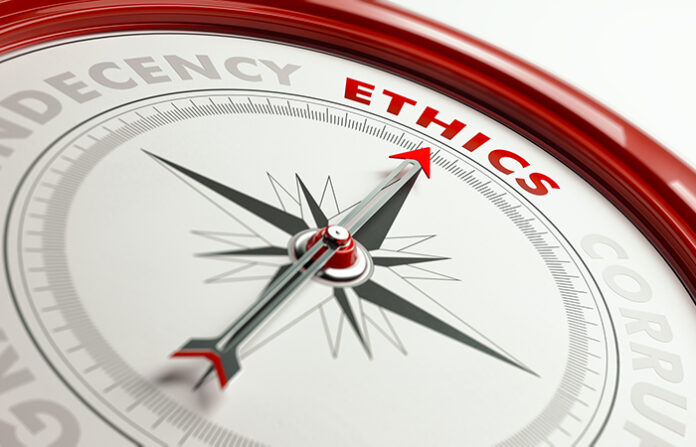Over the past year, HR leaders have shifted their focus from waiting for AI legislation to proactively developing strategies for integrating AI into their operations, says Jo-Ann Feely, global head of innovation at talent solutions firm AMS. But that doesn’t mean they aren’t worried about ethics.
This activity is particularly evident in talent acquisition, which has become the top concern for HR leaders, as highlighted by HR Executive’s What’s Keeping HR Up at Night survey. According to Feely, AI has the potential to revolutionize how recruiting is designed and executed within organizations, so AMS is exploring “front-runner use cases” for AI in TA—those that will actually solve problems or improve the recruiting experience. The firm does this while adhering to what it calls the “4 Es of AI”: ethical, efficient, explainable and enhancing experiences.
AMS launches Ethical AI in Talent Board
In line with this philosophy, earlier this month, AMS announced the launch of its Ethical AI in Talent Board, comprising experts from business, academia and non-profits. This board aims to guide the ethical application of AI in TA, addressing challenges like human biases, privacy concerns and transparency issues. The Board’s members include:
- Franck Cohen, chairman of GoCardless and cybersecurity platform CYE
- Dr. Eric Sydell, CEO of Vero AI
- Dr. Cari Miller, head of AI governance and research at The Center of Inclusive Change
- Dr. Fred Oswald, professor of industrial and organizational psychology at Rice University
- Dr. Avinash Dadhich, dean of Manipal Law School
- Hema Lakkaraju, a fellow at For Humanity and certified AI auditor
AI is seen as the “propeller” driving innovation and improvement in TA, but Feely emphasizes that the foundation must first be laid with standardized data and processes. The Board’s mission is to create a charter for the industry, ensuring that AI technologies in talent acquisition are fair, transparent and unbiased.
With applications ranging from managing talent pools to screening and interview scheduling, AI’s potential in TA is vast. The Board will work to ensure these tools respect individual rights and deliver tangible benefits to all stakeholders, including candidates, employees, recruiters and HR professionals. AMS has cultivated this board’s diverse texture so that its members can proactively anticipate possible pitfalls and potential of artificial intelligence. They will be essential in helping AMS employees and their clients successfully implement new tools that improve the talent acquisition process.
Ethical AI: Readiness and risks

Feely notes that organizations vary widely in their readiness to adopt AI in their talent processes. Some AMS clients have dedicated AI ethics officers, while others are just beginning to assess their AI capabilities. Financial constraints often limit the adoption of AI, as it remains an “expensive procurement,” according to Feely.
She says organizations with native developers may find unique applications within enterprise tech, while others rely on vendor partnerships. A significant challenge lies in investing in data interpretation to maximize AI-driven insights and reporting, a priority that Feely expects will be important to most organizations.
Feely highlights the importance of HR’s role in AI-related business strategies, as AI often influences how employees perform their jobs. However, all HR practitioners—from department leaders to TA specialists—don’t always share a unified perspective. Feely identifies two camps within TA teams: those enthusiastic about AI’s potential and those more cautious due to budgetary or philosophical concerns.
There is a middle ground. Feely advises HR leaders not to overlook the “fractional impact” of AI—small improvements that save time and enhance the workday without overhauling existing processes. These incremental changes can offer significant value, particularly during tight budgetary periods.
Commenting on the launch of the ethics board, Feely says it is clear that the implications for talent acquisition and management are significant, and the board will provide critical guidance on respecting users’ rights while reaping the benefits of artificial intelligence. “Our Ethical AI in Talent Board will help mitigate risks associated with AI while maximizing its potential to support our clients and their most valuable asset: their people.”



